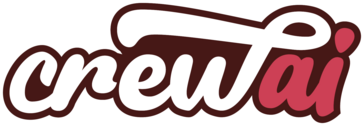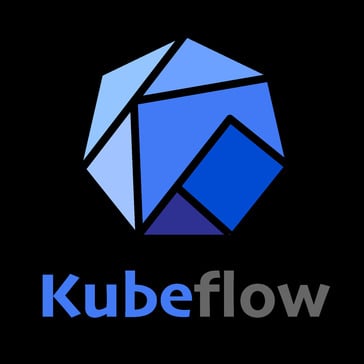- UiPath is a Robotic Process Automation (RPA) tool designed to automate repetitive business tasks, integrating AI, RPA, and human-in-the-loop capabilities into a cohesive system that supports autonomous and semi-autonomous agents.
- Reviewers frequently mention the user-friendly interface, drag-and-drop workflow design, excellent integration capabilities with enterprise applications, and the ability to create and control intelligent agents that can run independently but always be responsive to human control.
- Users reported issues with the initial setup for complex workflows requiring heavy scripting expertise, expensive licensing for smaller organizations, and occasional bugs introduced by updates that impact older workflows.
Best AI Orchestration Software
Best AI Orchestration Software At A Glance
G2 takes pride in showing unbiased reviews on user satisfaction in our ratings and reports. We do not allow paid placements in any of our ratings, rankings, or reports. Learn about our scoring methodologies.
- Overview
- Seller Details
Airbnb is a global community of Hosts and travelers—a community that was born in 2007 when two Hosts welcomed three guests to their San Francisco home, and has since grown to 4 million Hosts who have
- 100% Mid-Market
864,521 Twitter followers
- Overview
- Seller Details
Make data science more productive with the compute power to run more experiments and deploy AI initiatives faster. Run:AI’s cloud-native compute orchestration platform gives data scientists access to
- 50% Enterprise
- 50% Mid-Market
- Overview
- Seller Details
Airia’s Enterprise AI Orchestration Platform seamlessly integrates with your existing systems and data sources while maintaining enterprise-grade security, enabling you to rapidly prototype, deploy, a
- Overview
- Seller Details
The AI Platform for AI Companies. Develop AI with unmatched scale, performance, and efficiency
- 100% Enterprise
- Overview
- Seller Details
crewAI enables the creation of complex multi-agent interaction systems.
- Overview
- Seller Details
DataCove is the plug-and-play AI workflow platform built for SMBs and B2B teams. From legal reviews to resume screening and phishing detection, we provide out-of-the-box AI agents that automate your b
- Overview
- Seller Details
Emergence is an advanced AI platform designed to accelerate enterprise transformation by deploying and managing autonomous, goal-driven multi-agent systems. These systems plan, reason, and act across
- Overview
- Seller Details
- Overview
- Pros and Cons
- Seller Details
IBM® watsonx™ Orchestrate® puts AI to work for automating complex workflows and processes at scale, without changing your existing systems and tools. Join us at IBM TechXchange 2025 to explore thi
- 43% Mid-Market
- 36% Small-Business
709,764 Twitter followers
- Overview
- Pros and Cons
- Seller Details
The Machine Learning Toolkit for Kubernetes
- Information Technology and Services
- 45% Small-Business
- 40% Enterprise
6,383 Twitter followers
- Overview
- Pros and Cons
- Seller Details
A framework for developing applications powered by language models, emphasizing data-awareness and environmental interaction.
- Information Technology and Services
- 45% Small-Business
- 27% Enterprise
- Overview
- Seller Details
- Overview
- Seller Details
- Overview
- Seller Details
- Overview
- Seller Details
Orkes is the leading workflow orchestration platform that allows developers to scale distributed applications, modernize workflows for durability, and protect against software failures and downtimes.
- Information Technology and Services
- 50% Mid-Market
- 46% Small-Business
632 Twitter followers
- Overview
- Pros and Cons
- Seller Details
Teneo.AI enables you to automate any CCaaS to provide the most accurate customer service experience available on the market with Generative AI and Conversational AI. Teneo is an AI orchestration pl
- 53% Small-Business
- 41% Enterprise
2,629 Twitter followers
- Overview
- Seller Details
Thread AI is a New York-based company founded by AI and engineering leaders from Palantir Technologies, dedicated to simplifying infrastructure for enterprises and public sector agencies aiming to max
- Overview
- Seller Details
105,217 Twitter followers
- Overview
- Pros and Cons
- Seller Details
UiPath (NYSE: PATH) is a global leader in agentic automation, empowering enterprises to harness the full potential of AI agents to autonomously execute and optimize complex business processes. The UiP
- Software Engineer
- RPA Developer
- Information Technology and Services
- Computer Software
- 52% Enterprise
- 29% Mid-Market
- UiPath is a Robotic Process Automation (RPA) tool designed to automate repetitive business tasks, integrating AI, RPA, and human-in-the-loop capabilities into a cohesive system that supports autonomous and semi-autonomous agents.
- Reviewers frequently mention the user-friendly interface, drag-and-drop workflow design, excellent integration capabilities with enterprise applications, and the ability to create and control intelligent agents that can run independently but always be responsive to human control.
- Users reported issues with the initial setup for complex workflows requiring heavy scripting expertise, expensive licensing for smaller organizations, and occasional bugs introduced by updates that impact older workflows.
105,217 Twitter followers
- Overview
- Seller Details
- Overview
- Seller Details
Vue.ai — Your AI Orchestration Platform 1. The efficient movement of clean, multi-modal, AI-enriched datasets that grow and change with time, are connected to multiple applications with no divergence
- Apparel & Fashion
- Retail
- 41% Mid-Market
- 29% Enterprise
13,290 Twitter followers












